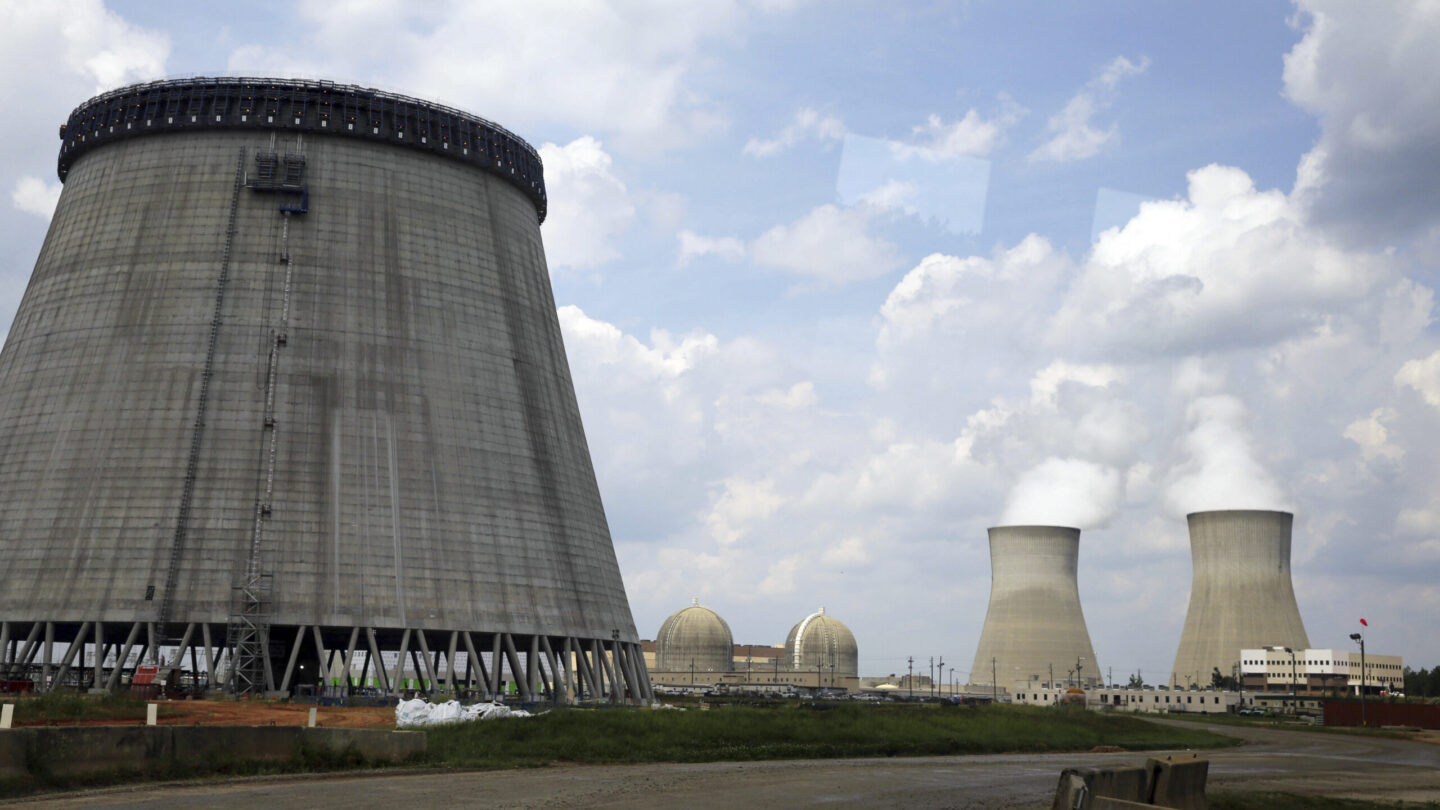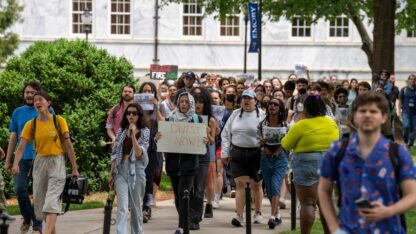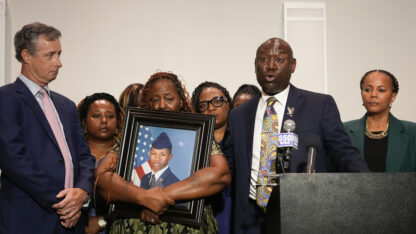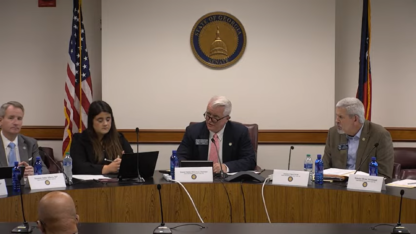Spotlight Is On Senate Races, But Ga.’s Public Service Commission Race Matters For Climate

John Bazemore / Associated Press
Climate change is one of the big issues President-elect Joe Biden plans to prioritize, and his efforts would be easier with the Senate on his side.
On a Facebook Live event aimed at Georgians Tuesday evening, Sen. Sheldon Whitehouse (D-R.I.) called Senate Majority Leader Mitch McConnell “a human blockade against any climate action.”
Whitehouse recently toured Georgia to learn more about the effects of sea level rise on the coast here, since his state is also at risk. Now, he’s encouraging Georgians to vote for Democrats Rev. Raphael Warnock and Jon Ossoff.
Other get out the vote efforts demonstrate how much Georgia’s two Senate runoffs matter to climate advocates. The Environmental Voter Project is sending out mailers. Sierra Club volunteers are sending texts and personalized postcards. The League of Conservation Voters is running digital ads.
Climate change hasn’t been a major issue in the Senate campaigns, though
The Democrats say they support renewable energy development; the Republicans criticize the Green New Deal, though neither of the Democrats has endorsed the policy proposal. But really, the campaigns are focused on other issues.
But there’s a third race on the ballot next month, one that could have an effect on what Georgia does about addressing climate change. It’s not as high-profile as the two Senate races, but the race for a seat on the Georgia Public Service Commission is also in a statewide runoff.
Georgia’s Energy Regulator
If the Public Service Commission sounds unfamiliar, Mandy Mahoney, president of the Southeast Energy Efficiency Alliance, understands.
“People don’t know what it is,” she said during her introduction on a virtual town hall with the PSC candidates earlier this month.
“The Public Service Commission addresses energy bills. It is what greenlights whether or not we’re going to have clean energy in our state,” she said. “Those issues are critical to economic development and quality of life here in Georgia and across the country.”
Georgia’s five Public Service Commissioners have a say in how much Georgia Power charges for electricity. Earlier in the pandemic, they imposed a moratorium on electricity shutoffs for Georgia Power customers, then a few months later allowed it to end. They oversee the costs for Plant Vogtle, which is the only nuclear power construction project in the country.
And the commissioners influence where Georgia’s electricity comes from, which means they have power when it comes to how Georgia addresses climate change.
The commissioners’ terms are six years. They get paid close to $120,000 a year, plus travel expenses.
The incumbent in this race is Republican Lauren “Bubba” McDonald. He’s served on the PSC for 17 years, and was in the Georgia House for 20 years before that. This is his third PSC runoff election.
“My record on the Public Service Commission, and what I have promoted for renewable energy, speaks for itself,” he said during the virtual town hall, which was organized by the Atlanta chapter of the Climate Reality Project.
McDonald has championed solar development in Georgia. Georgia Power had been slow to get into solar development, and he pushed for it.
“And now we are 6th in the nation in renewable energy development with solar energy,” he said.
And, he said, Georgia has added all that solar without any kind of government mandates, something that McDonald is proud of.
Daniel Blackman, the Democratic challenger, has worked in environmental policy and in investing, and he ran against McDonald in the last race for this seat, too, in 2014. He’d be the first Black person elected to the Commission; one other African-American has been a commissioner, but he was appointed.
On climate, Blackman said he’d like to see more action.
“It’s time for really serious progressive policies that speak to the issue,” he said on the town hall.
“I’d support subsidies for renewable energy,” he said. “I also support statewide mandates that have worked in other states.”
If he won, Blackman would be the lone Democrat on the commission.
Low Visibility Race
Jamey Beasley said she wishes there was more focus on this race, and on the importance of the Public Service Commission.
“Listening to millennials and the younger generation, they’re extremely cognizant of climate change,” Beasley, who is working towards a Ph.D. in political science at Clark Atlanta University, said.
She said with Washington slow to act, Georgia’s PSC could be doing more to lead.
But the reality is, the spotlight isn’t on this race this election. The spotlight is almost never on PSC races.
“Very few people know the candidates who compete,” said Charles Bullock, a political science professor at the University of Georgia. “The candidates don’t raise much money. They don’t have much visibility.”
Most people who vote in the PSC race will probably vote based on political party, he said.
“I suspect what’ll happen is that people go to the polls because they want to vote in one or both of the Senate contests and they may even be quite surprised when they see there’s something else,” he said.
Bullock said PSC races are so obscure, they’re actually good measures for the strength of political parties in Georgia, which doesn’t have party registration, because most voters are unlikely to be specifically motivated by a PSC candidate.
That means the fact that the PSC race is in a runoff, just helps prove how competitive Georgia has become between Democrats and Republicans.
This story is part of the America Amplified initiative using community engagement to inform and strengthen local, regional and national journalism. America Amplified is a public media initiative funded by the Corporation for Public Broadcasting.








